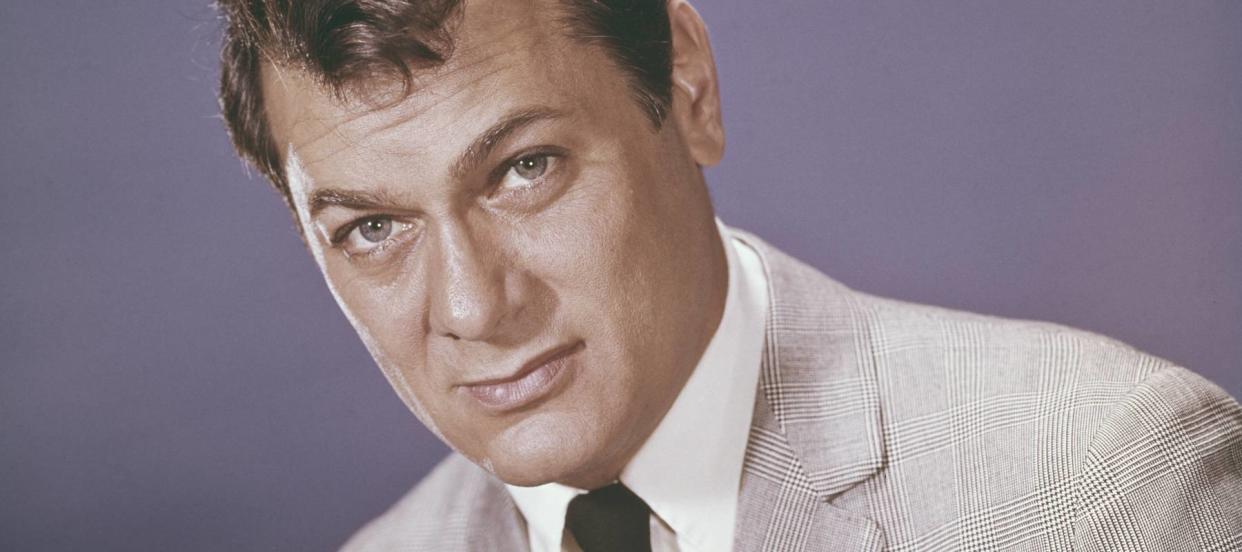'Very specific in his wishes': Hollywood legend Tony Curtis cut his kids out of his will and $60M fortune when he died. Here's how to avoid messy inheritance disputes

"Spartacus" and "Some Like It Hot" star Tony Curtis died in 2010 and was buried with some of his favorite possessions — including a Stetson hat, an Armani scarf and his iPhone.
But not a dime from his fortune was bequeathed to the five children (including acclaimed actress Jamie Lee Curtis) he left behind.
Don’t miss
Commercial real estate has outperformed the S&P 500 over 25 years. Here's how to diversify your portfolio without the headache of being a landlord
Finish 2023 stronger than you started: 5 money moves you should make before the end of the year
The US dollar has lost 87% of its purchasing power since 1971 — invest in this stable asset before you lose your retirement fund
Just a few months before Tony died, he rewrote his will — intentionally disinheriting his kids, leaving the bulk of his estimated $60-million estate to his fifth wife, Jill Curtis (now Curtis-Weber), she told Inside Edition.
"Tony was very specific in his wishes," Jill said.
"I acknowledge the existence of my children, and have intentionally and with full knowledge chosen not to provide for them" — that's how Tony put it in his will.
Jill said Tony informed his children they were being disinherited, but in a separate interview, his daughter Allegra Curtis told Inside Edition she and her siblings were “blindsided” by the move and claimed her father was “influenced” in his decision.
Eldest daughter Kelly Curtis attempted to sue but was rejected by the court.
The Curtis clan conflict may be infamous, but their situation is not unique. Plenty of inheritance squabbles have escalated among significantly less wealthy and well-known families, whether due to rewritten wills, or not having a will at all.
Wills aren’t just for the rich and elderly
If you have any assets it’s always a good idea to have s a will — whether you want to support your kids, your pets or even just leave money to charity after your death.
Even younger folks in their twenties could benefit from estate planning.
However, two-thirds of Americans haven’t created any sort of estate planning document, according to a 2023 study by senior living referral business Caring.com. While some say they’ve been procrastinating, others think they don’t have enough wealth to leave behind.
But stalling puts your loved ones at risk and can create ugly disputes long after you’re gone — so here’s how to get started.
Make a list of assets and debts
Begin by taking note of your assets, including your home, your car and anything you own that’s valued over $1,500. This can also include nonphysical assets such as investments, bank accounts and insurance policies.
Next, list your debts, such as your credit card balances, auto loans and mortgages. It’s best for your loved ones to stay informed of what debts they will need to take on.
Read more: 'It's not taxed at all': Warren Buffett shares the 'best investment' you can make when battling inflation
Pick your beneficiaries
To avoid any major disputes between your loved ones in the future, it’s important to name your beneficiaries in your will.
These could be family members, charities, businesses or a trust — but make sure you’re specific over who gets what. If you want to protect your pets, you can even name a guardian to take care of them and leave behind funds for their upkeep.
Choose the right executor
Next, pick someone you trust to carry out the terms of your will and manage any unresolved affairs, like paying bills and taxes.
If you don’t name an executor, someone will have to apply to handle your estate via probate court, or the court will name an executor.
Figure out how you want to divide your estate
The hardest step is deciding how to distribute your major assets. Consider having a conversation with your loved ones in advance so everybody’s clear what happens when you’re gone and your will is being read.
You should also review and update your will when needed to include any new assets or debts being, or big changes in your life, such as a divorce, for example.
Talk to a pro
Lastly, think about consulting a professional. While it is possible to write up a will without a lawyer, they can help with more complex financial matters, such as if you’re a business owner or if you’ve got a complicated family situation — or you want to disinherit your kids.
What to read next
Thanks to Jeff Bezos, you can now cash in on prime real estate — without the headache of being a landlord. Here's how
Worried about the economy? Here are the best shock-proof assets for your portfolio. (They’re all outside of the stock market.)
Rising prices are throwing off Americans' retirement plans — here’s how to get your savings back on track
This article provides information only and should not be construed as advice. It is provided without warranty of any kind.
